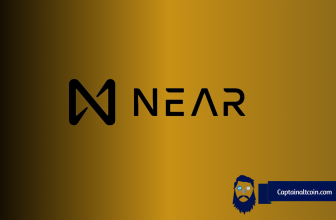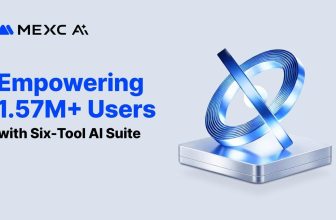
The next phase of the internet is known as Web 3.0, where consumers have ownership over their data and apps are decentralized. Blockchain, a type of distributed ledger technology (DLT), enables transactions that are safe, open, and devoid of any kind of third-party involvement.
A digital asset known as cryptocurrency employs cryptography to safeguard its transactions and regulate the generation of new units. Startups can raise money using ICOs by exchanging tokens for shares.
Cryptography-secured digital assets are being developed as a new currency that doesn’t need banks or other centralized financial organizations, making them potentially more secure than traditional currencies.
What you'll learn 👉
How Will Web 3.0 Impact On Business
Web 3.0 is centered on artificial intelligence and machine learning because these technologies may assist large and small businesses in better understanding their clients and in providing a completely personalized user experience.
Web 3.0 technologies have the potential to help improve the level of trust and transparency that exists between companies and their consumers by producing an immutable record of transactions on a blockchain. Customers are able to track the progress of their orders during the production process by gaining access to real-time information regarding the supply chain.
The term “digital transformation” refers to the process of utilizing digital technologies to develop new or enhanced corporate procedures, products, and services. It frequently refers to the process of moving away from conventional analog business models and towards digital ones.
The requirement for organizations to stay current with emerging technology has increased awareness of digital transformation during the past few years. However, the process of digital transformation may be difficult and expensive, and it requires considerable changes to both the organizational structure and the culture of the business.
As a direct consequence of this, a significant number of companies have been unwilling to fully embrace digital transformation. The introduction of Web 3.0 and the technology behind blockchains are starting to change that.
The blockchain is yet another technology that has the ability to fundamentally alter the game and is already having an effect on the digital transformation process. A blockchain can be thought of as a decentralized database that holds transaction records in a form that is both safe and unchangeable.
As a result, it serves as the perfect platform for asset or data exchange without the requirement for a centralized authority. Supply chain management, healthcare, and finance are just a few of the industries that have adopted blockchain due to its capacity to offer security and transparency.
It is expected that there will be a greater amount of broad adoption of this game-changing technology as more organizations investigate the possibilities offered by blockchain.
Why Is It Important for Your Company to Use Web 3.0?
The impact that Web 3.0 will have on businesses will be to make them more open and focused on the needs of their customers. The way businesses handle customer data will undergo a revolutionary transition that will fix all that was wrong with it previously.
Businesses, both old and new, will open the doors for Blockchain and the benefits the technology offers. You will notice that your applications are receiving an upgrade to Blockchain, in which everything will be made public and accessible to anybody and everyone.
The Influence Of Web 3.0 on Search Engine Optimization
When formulating your plan for digital marketing, you should give careful consideration to the relationship that exists between SEO and Web 3.0. In the past, search engine optimization (SEO) meant tailoring your website specifically to Google’s indexing system. Things are shifting, though, as a result of the development of Web 3.0.
Google is now placing an even greater focus than it ever has before on the whole experience and engagement of its users. It’s no longer sufficient to have a well-optimized website; you also need to make sure that it engages users and offers a positive user experience.
Utilizing user-generated content is one strategy you can use to boost engagement on your website. User-generated content, or UGC, can come in a variety of formats, including blog articles, reviews, ratings, and posts on social media platforms, as was previously indicated.
You can demonstrate to Google that your website is active and interesting by putting user-generated content (UGC) into it. Because of this, your search ranking may ultimately improve a result.
Personalizing the content of your website is another approach you may take to boost user participation on your platform. In order to do this, you must use data to individually tailor your content to each user. Immediate Connect simplifies trading, especially for novices who may utilize the tools to develop and apply effective trading strategies as they gain experience.
You can increase the likelihood of a user being engaged with your material and maintaining their attention by personalizing it to the user’s specific preferences and requirements. Personalization is applicable to a variety of marketing channels, including email, the design of websites, and advertising on social media platforms.
Conclusion
When Web 3.0 is released, our interactions with the digital world will be reimagined, and this will not be a transformation that only affects individuals. The impact that blockchain technology will have on organizations, whether they are disruptive or traditional, will be enormous.
However, the shift from Web 2.0 to Web 3.0 won’t happen overnight and will take some time. That is to say, companies will have the opportunity to reflect on their processes and determine where they stand in relation to the decentralization and transparency radar.
But despite the fact that Web 3.0 is still in the far future, the fact of the matter is that companies need to start preparing now. Let our Blockchain expertise help you.





